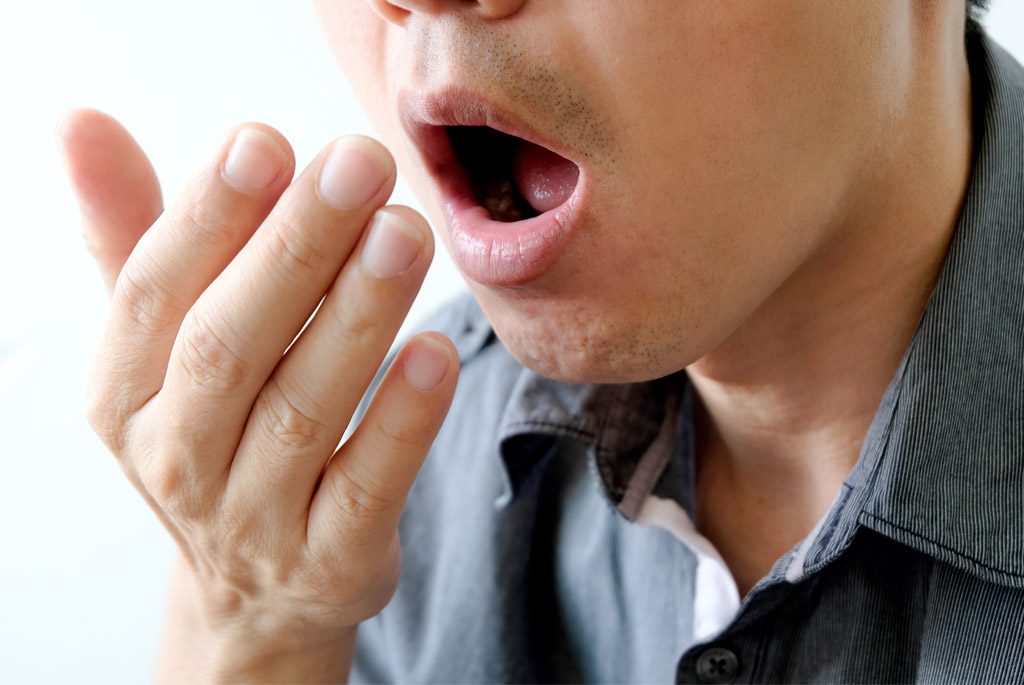
Bad breath, also known as halitosis, can creates social embarrassment and anxiety, or worse, affects personal and business relationships. Here are 5 causes of bad breath.
How to know if you have halitosis
- Breathe out forcefully through your mouth into a cupped hand and inhale through your nose immediately.
- Scrape the surface of your entire tongue from back to front with a spoon. Allow it to dry, then smell it.
- Ask a relative or close friend to tell you honestly.
1. Infection or inflammation in the mouth, nose and throat
- Bad breath can occasionally stem from small stones that form in the tonsils and are covered with bacteria that produce odor
- Infections or chronic inflammation in the nose, sinuses or throat
- Poor dental hygience
- Laryngopharyngeal reflux
- Bronchitis
2. Dry mouth
Saliva helps clean and flush the mouth of food and other particles. Saliva maintains a balance of healthy bacterial flora in the mouth. Causes of dry mouth:
- Reduced production of saliva during sleep allows oral bacterial to flourish, particularly in mouth-breather and those who do not maintain oral cleanliness before sleep. The flourishing of oral baterial causes bad breath commonly known ‘morning breath’
- Blocked nose due to deviated nasal septum, polyps, tumor, or enlarged turbinates, adenoids or tonsils
- Disease of salivary glands, insufficient water intake, medication, antihistamines, decongestants or diuretics
- Nose cancer, oral cavity or larynx, especially after surgery and radiation therapy
3. Diet
- Consumption of odorous food items, such as onion, garlic or curry
4. General health diseases
- Pneumonia, diabetes, liver and kidney disease
5. Smoking
- Smoking cigarette cause dry mouth, altering the balance of healthy bacterial flora
Self-treatment
Before seeing a specialist, try these steps first:
- Keep mouth moist at all times
- Drink adequate amounts of plain water
- Eat fresh fruits and vegetables (apples, carrots, etc)
- Chew sugarless dental chewing gum
- Regularly floss and brush teeth and clean oral appliances
- Use mouthwash
- Avoid halitosis-causing foods
- Use a chinstrap to prevent mouth-breathing during sleep
- Don’t smoke
If these steps fail to counter the condition, consult an ENT specialist. Treatment depends on the cause. Your ENT specialist will identify the cause and treat it accordingly.







